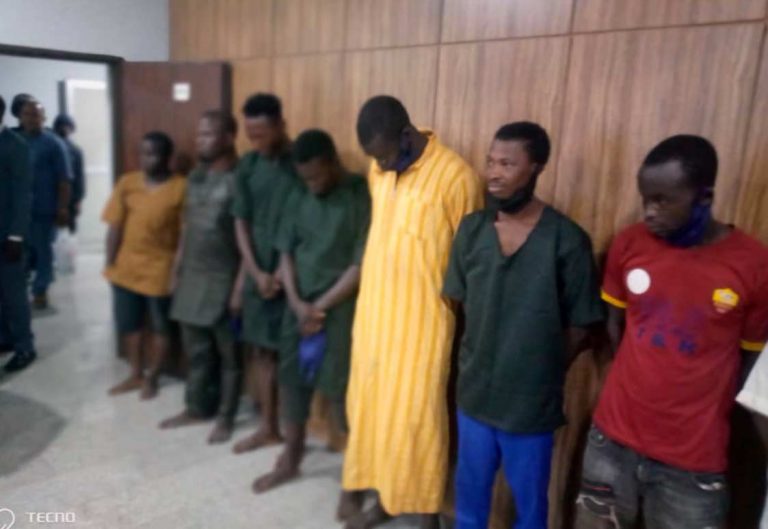Nigeria News
DSS Shun Court Order, Fails To Produce Detained Igboho’s Aides

Despite a court order, the Department of State Services, DSS today failed to produce in court 12 detained aides of embattled Yoruba Nation agitator, Sunday Adeyemo, better known as Sunday Igboho
Naija News reports that the Federal High Court sitting in Abuja today adjourned till Monday the suit brought by 12 detained associates of Igboho.
Justice Obiora Egwuatu had ordered that the DSS should grant the lawyer to the detained aides access to his clients. The counsel to the DSS, I. Awo, informed the court that the DSS has no intention of disobeying the court’s order. However, he stated that there were facts that were necessary for the court to be aware of regarding the matter.
Awo noted that some of the names on the court order were different from the names of the persons they had arrested on July 1, 2021 at Igboho’s house. The counsel to the applicants, Pelumi Olajengbesi, alleged that the DSS had given the applicants new names as there are discrepancies in the spelling of their names.
In the suit marked FHC/ABJ/CS/647/2021, Justice Egwuatu had ordered the security agency to produce the detained aides in court with readiness to explain why the agitator’s aides should not be admitted to bail.
However, DSS shunned the order and hence Egwuatu adjourned the court sitting.
Meanwhile, at the last adjourned date, the applicants’ counsel, moved his ex parte motion praying the court for an order “mandating and compelling the respondents to produce the applicants” to enable the court “inquire into the circumstances constituting grounds of their arrest and detention” since July 1, and where it seems fit grant applicants bail.
They also sought the order of the court mandating and compelling the respondents to produce the applicants before the court and “show cause as to why the applicants should not be granted bail in accordance with the provision of section 32 of Administration of Criminal Justice Act 2015 and other extant laws in Nigeria.”








